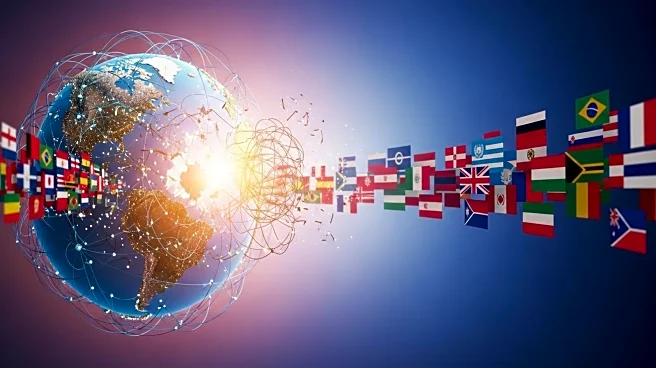What's Happening?
The United Nations Security Council has voted against a resolution proposed by Russia and China to delay the reimposition of sanctions on Iran. The resolution aimed to postpone the sanctions for six months but was defeated in a 4-9 vote, with two abstentions. The sanctions are set to be reinstated due to Iran's nuclear program, which has been a point of contention since the U.S. withdrawal from the Joint Comprehensive Plan of Action (JCPOA) in 2018. Iran has denied pursuing nuclear weapons, asserting its right to nuclear energy. The reimposition of sanctions is expected to exacerbate existing Western sanctions on Iran.
Why It's Important?
The decision to reimpose sanctions on Iran is significant as it underscores the ongoing tensions between Iran and Western powers, particularly the U.S. and European nations. The sanctions could further strain Iran's economy, which is already under pressure from existing sanctions. This move may also impact global diplomatic relations, as it highlights the divisions within the UN Security Council and the challenges in reaching a consensus on Iran's nuclear activities. The reimposition of sanctions could lead to increased geopolitical tensions in the Middle East, affecting global oil markets and international security.
What's Next?
With the sanctions set to snap back, Iran may face increased economic challenges, potentially leading to further domestic unrest. The international community will be watching closely to see how Iran responds to the sanctions and whether it will take steps to comply with international nuclear agreements. Diplomatic efforts may continue, but the likelihood of immediate negotiations appears slim. The situation could lead to further regional instability, with potential implications for global energy markets and international relations.









